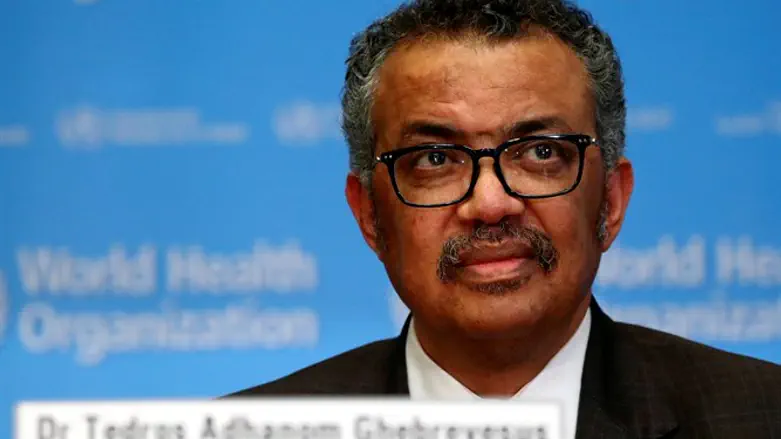
The head of the World Health Organization warned on Monday against just allowing the new coronavirus to spread in the hope of achieving so-called herd immunity, saying it was "unethical", AFP reports.
Tedros Adhanom Ghebreyesus cautioned against calls in some countries to let COVID-19 run its course until enough people develop the immunity needed to naturally halt its spread.
"Herd immunity is a concept used for vaccination, in which a population can be protected from a certain virus if a threshold of vaccination is reached," he pointed out during a virtual press briefing.
For measles, for instance, it is estimated that if 95 percent of the population is vaccinated, the remaining five percent will also be protected from the spread of the virus.
For polio, the threshold is estimated at 80 percent.
"Herd immunity is achieved by protecting people from a virus, not by exposing them to it," Tedros said.
"Never in the history of public health has herd immunity been used as a strategy for responding to an outbreak, let alone a pandemic," he insisted.
Relying on naturally obtaining herd immunity in such a situation would be "scientifically and ethically problematic", Tedros added.
"Allowing a dangerous virus that we don’t fully understand to run free is simply unethical. It's not an option," he said, pointing to the lack of information on the development of immunity to COVID-19, including how strong the immune response is and how long antibodies remain in the body.
He also pointed out that it has been estimated that less than 10 percent of the population in most countries are believed to have contracted the disease.
"The vast majority of people in most countries remain susceptible to this virus," he said. "Letting the virus circulate unchecked therefore means allowing unnecessary infections, suffering and death."
The UN agency also voiced optimism at the speed at which vaccines against the virus are being developed, with 40 vaccine candidates in clinical trials, including 10 in late-stage Phase III trials.
While US President Trump has said that a COVID-19 vaccine will be ready before next month's US elections, WHO chief scientist Soumya Swaminathan said the vaccines in late-stage trials were not expected to produce sufficient data to request regulatory approval until December, at "the earliest".
"Into the early part of 2021, we expect a number of trials to start providing data for regulators to look at," she said.
